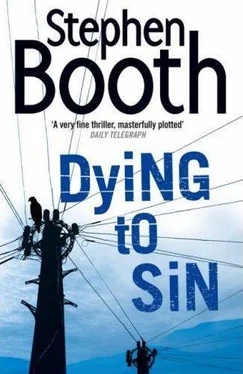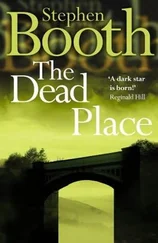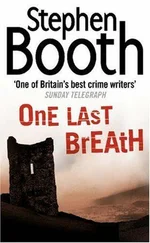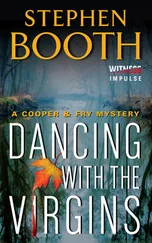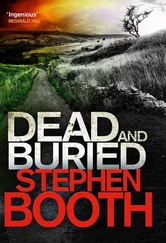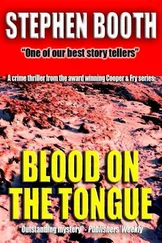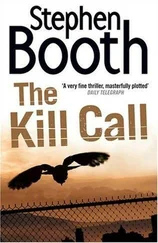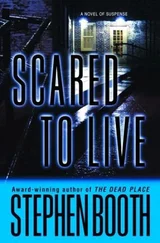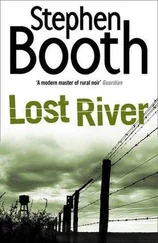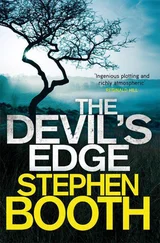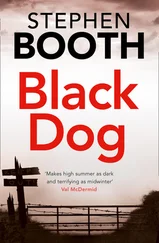Stephen Booth - Dying to Sin
Здесь есть возможность читать онлайн «Stephen Booth - Dying to Sin» — ознакомительный отрывок электронной книги совершенно бесплатно, а после прочтения отрывка купить полную версию. В некоторых случаях можно слушать аудио, скачать через торрент в формате fb2 и присутствует краткое содержание. Жанр: Полицейский детектив, на английском языке. Описание произведения, (предисловие) а так же отзывы посетителей доступны на портале библиотеки ЛибКат.
- Название:Dying to Sin
- Автор:
- Жанр:
- Год:неизвестен
- ISBN:нет данных
- Рейтинг книги:3 / 5. Голосов: 1
-
Избранное:Добавить в избранное
- Отзывы:
-
Ваша оценка:
- 60
- 1
- 2
- 3
- 4
- 5
Dying to Sin: краткое содержание, описание и аннотация
Предлагаем к чтению аннотацию, описание, краткое содержание или предисловие (зависит от того, что написал сам автор книги «Dying to Sin»). Если вы не нашли необходимую информацию о книге — напишите в комментариях, мы постараемся отыскать её.
Dying to Sin — читать онлайн ознакомительный отрывок
Ниже представлен текст книги, разбитый по страницам. Система сохранения места последней прочитанной страницы, позволяет с удобством читать онлайн бесплатно книгу «Dying to Sin», без необходимости каждый раз заново искать на чём Вы остановились. Поставьте закладку, и сможете в любой момент перейти на страницу, на которой закончили чтение.
Интервал:
Закладка:
The initial body tent had been replaced by a larger crime scene tent to allow more space for working in. The digging team could be heard chatting among themselves sometimes, but they were more often silent and absorbed in their task, oblivious to the presence of the police waiting for them to finish their work.
As Fry and Cooper arrived, there was a burst of laughter from the excavation area, slightly brittle laughter, a release of tension.
‘Anybody want a Pyrex baking dish?’ said someone. ‘It’s still in one piece, just needs a bit of mud cleaning off. I’m giving it away. If you don’t want it, I’ll sell it on eBay.’
‘It might be evidence,’ said a police exhibits officer standing nearby with his clipboard.
The diggers groaned and went back to their task.
‘Hello, what is he doing here?’ said Fry as they reported in at the mobile incident unit.
Cooper looked around, but there were too many people to make out which of them Fry had picked out. ‘Who?’
‘Jamie Ward. The builder’s labourer.’
‘The one who found the body?’
‘That’s him. He’s over there, at the outer cordon.’
‘That’s odd.’
‘Normally, I’d say it was downright suspicious,’ said Fry. ‘Members of the public who find dead bodies shouldn’t still be hanging around the crime scene next day — especially when they live miles away, as Jamie does. It makes you look guilty.’
‘But Jamie can’t be a suspect. Maybe he’s come back with some more information.’
‘We’ll see.’
Fry strode over to the cordon. Jamie looked more relieved than startled when he saw her.
‘I didn’t recognize anyone else. I’ve been waiting to speak to you,’ he said.
‘Go ahead, then, Jamie. I’m here now.’
‘I want to show you something.’
Jamie led her to the back of the farmhouse, skirting the police tape that had been strung from gatepost to gatepost and unrolled across the top of a wall. Fry could only see the large yellow skip, a lot of digging, and a cement mixer and wheelbarrows left by the builders. She made a mental note to chase up that search of the skip. God alone knew what evidence could have been dumped in there.
‘See this area here?’ said Jamie. ‘Some of the crew have been getting ready to connect the new drains up.’
‘Yes, I see.’
‘But next to it there’s a disturbed patch of ground. It’s obvious when ground has been disturbed. The subsoil ends up on top, and it looks different. It’s one thing I’ve learned.’
‘So what do you think happened here?’ asked Fry.
Jamie frowned uncertainly. ‘I don’t really know. I think there must have been a change in the plans some time — there was a trench here, but it’s been filled in.’
‘When would this trench have been dug?’
‘One day last week, I suppose. I didn’t see it being filled in again. I reckon Nikolai must have got somebody else to do it while I was busy round the front.’
‘Well, thanks, Jamie. I’ll make sure it’s noted. Our diggers are a bit busy right now, but we’ll be at the scene for a good while yet.’
* * *
With Cooper at the wheel, they drove towards Rakedale on a dark, jungle-green road bordered by stone walls, muddy cattle and a rushing stream. When they reached the hill into the village, Cooper found water running towards him down the road, streaming into two rivulets under his wheels.
‘Oh, great,’ said Fry when she saw the water. ‘It’s like the village is pissing on us already.’
The road was very narrow, barely wide enough for one vehicle, and the stone walls left no room for error. It wasn’t used much, though — grass was growing down the road in the middle of the tarmac. There was better visibility on these roads in the winter than the summer, because the trees were so bare. But the surfaces were always slippery, especially if you had to pull over on to the verge to let another vehicle pass.
Cooper was taking care to look for any possible passing places as he went. Most of the wider verges and gateways that might have been usable in the summer were too muddy for the average car, which would be certain to get bogged down or slide off into the ditch. It was lucky he had four-wheel drive. Even luckier that Diane Fry had agreed to take his car. Her Peugeot would hardly have made it up the hill.
‘Why are you driving so fast on a road like this?’ asked Fry.
‘There are no passing places. We don’t want to meet anyone coming the other way on these straight stretches, or someone would have to reverse a long way.’
Fry sighed. ‘I suppose that makes sense, of a kind.’
The place everyone referred to as a village was no more than a T-junction where the side road from Pity Wood met the B5012. There were farms either side of the road, the entrance to an old quarry, fenced off and blocked with limestone boulders. On the southwest corner of the junction, a stile provided access to a footpath that snaked off across the fields between the dry-stone walls, probably heading towards High Peak Trail, the old railway line to Buxton. The grass verge had been flattened and worn away here — the signs of an unofficial lay-by made by hikers leaving their cars. They’d be less willing to do that in December, the rutted mud making verges treacherous for parking on.
The main part of the village clung to the hillside just below its brow. But there were many far-flung farms, where a hard living had been scraped from sheep farming for centuries. Three or four farms clustering around a double bend formed the centre of Rakedale. There were more cattle sheds than houses, more trailer ramps and livestock gates than front doors. The only observer as they passed was a black-and-white calf peering from a pen in the corner of a yard. The calf watched them miserably, kicking at its straw.
There were no road markings here — no white lines or yellow lines, no chevrons or rumble strips. Even the edges of the road itself were unclear. At the top of the village, where they had to make a sharp right turn, the junction was pretty much indistinguishable. Every direction looked like a farm track.
Cooper parked in front of the village Methodist chapel and they all got out, pulling on their coats, sorting their interview forms into plastic wallets to keep them dry, and dividing the village up into three sectors. Fry looked at a giant puddle between the car and the road.
‘And now I suppose you’ll tell me that Derbyshire is disappearing under water because sea levels are rising.’
‘No, but parts of Lincolnshire are going to disappear,’ said Cooper. ‘Perhaps not in our lifetime, but — ’
‘Oh, give it a rest.’
‘You brought it up.’
Fry walked off, and Murfin nudged Cooper as they watched her go. ‘I think you won that one, Ben.’
‘It’s not a competition, Gavin. People should be thinking about these things.’
Murfin pulled a couple of chocolate bars out of his pocket and handed one to Cooper.
‘Blimey. As long we can still grow food, what does it matter?’
House-to-house. It wasn’t always the most popular job on a major enquiry. Especially when it was raining.
And today, in Rakedale, it was definitely raining. From the state of the roads and the farm entrances, it looked as though it had been raining all year. The village might as well exist under some permanent black cloud that trickled constantly, like a leaky hosepipe.
Cooper crossed the road to a row of four cottages. He knocked on the door of the first house, drew up his collar and readied his clipboard. When you did house-to-house, bad weather was a useful barometer for what sort of people you were dealing with. In parts of Edendale, they’d leave you standing in the rain without a qualm, would rather see you drown in front of their eyes than let you over their threshold. If you were visiting an address on the Devonshire Estate in a downpour, you’d better be carrying a warrant, or an umbrella.
Читать дальшеИнтервал:
Закладка:
Похожие книги на «Dying to Sin»
Представляем Вашему вниманию похожие книги на «Dying to Sin» списком для выбора. Мы отобрали схожую по названию и смыслу литературу в надежде предоставить читателям больше вариантов отыскать новые, интересные, ещё непрочитанные произведения.
Обсуждение, отзывы о книге «Dying to Sin» и просто собственные мнения читателей. Оставьте ваши комментарии, напишите, что Вы думаете о произведении, его смысле или главных героях. Укажите что конкретно понравилось, а что нет, и почему Вы так считаете.
